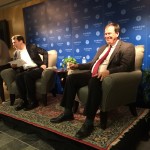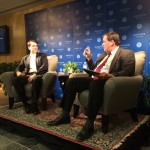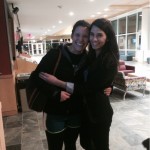Beyond Disabilities week started as an idea. And an email. And one year ago it became a reality.
Today we are celebrating the one year anniversary of Beyond Disabilities week at Gordon College. It was a great week that challenged students, faculty, and outside community members to think about disabilities in a new light.
In remembrance, a Beyond Disabilities page on this blog was created to remember and relive the many discussions on campus. We hope for the conversation to continue through this electronic medium.
Discussions have swirled at Gordon in recent years about perception, art, disability politics, and their impact on the disability community—and from February 17 through 21, those vital, intriguing issues were the focus of a symposium-style week of events at Gordon called Beyond Disabilities. It culminated with a talk by Temple Grandin, Ph.D., an acclaimed speaker, writer and activist on the topic of autism.
-Gordon College: Beyond Disabilities Week: A Week to Explore
An overview/review of the week:
1. A Shared Vision of Access for All (Huffington Post, D. Michael Lindsay, May 2014)
2. Beyond Disabilities Week: A Week to Explore (Gordon College, March 2014)
3. Students Launch Beyond Disabilities Week (The Tartan, February 2014)
4. Beyond Disabilities Week (Stillpoint Magazine, Spring 2014)
5. Beyond Disabilities Week Schedule (Gordon College, January 2014)
6. Beyond Disabilities: Strength in Weakness (Brett Olson, August 2014)
7. Beauty in Weakness: Examining the Mess Under the Carpet (Brett Olson, January 2014)
Team Sites:
Twitter: @gcdisabilities (https://twitter.com/gcdisabilities )
Facebook: https://www.facebook.com/gcbeyonddisabilities
Instagram: http://instagram.com/gcbeyonddisabilities
Please visit the Beyond Disabilities page found on the top of this blog to view each event that took place over the week.
#GCBeyondDisabilities









